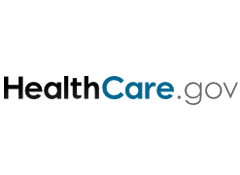Sign In

Menu
Suggested Searches
Recent Searches
Suggested Searches
Product Ratings
Resources
Chat With AskCR
Resources
All Products A-ZThe payment for your account couldn't be processed or you've canceled your account with us.
Re-activateMy account
Sign In
My account
Sign In


Health insurance penalties, which will be levied for the first time this tax season, could cost some taxpayers 1 percent of their household income or $285, whichever is higher. Now taxpayers are required to be covered by health insurance, have a valid reason for lack of coverage, or pay the 1 percent or $285 "shared responsibility" tax.
Unfortunately, if you have questions about where you stand, you may have trouble reaching the IRS, which has been saddled with administering this part of the Affordable Care Act at the same time that its funding has been cut by lawmakers. IRS Commissioner John Koskinen recently warned taxpayers that they could wait an average of 34 minutes before reaching a human being on the agency's phone lines this tax season. And that's if they're among the half of all callers who get through at all.
Given that background, here's how to wade through the confusion and potentially avoid having to contact the IRS. You also may be able to avoid the health insurance penalty and save some money.
You'll need to check a box on Form 1040, line 61, indicating that everyone in your household had health insurance for all of 2014. (Some plans don't count. They include coverage only for vision or dental care, or a specific disease or condition; workers' compensation; and plans that only offer discounts on medical services.)
The ACA doesn't require taxpayers to submit documentation of health coverage with their returns, an IRS spokesman told us. But keep proof for your own records: a copy of your insurance card; insurance statements (such as an explanation of benefits); payroll statements or W-2s from your employer reflecting health-insurance deductions; or IRS Form 1095-A, which insurers in state marketplaces are required to send participants. (Contact your marketplace if you don't get it by early February; you'll need it to do your taxes.)
You can claim exemptions from health care coverage on your tax return for a number of reasons, including financial hardship, a gap in coverage that was less than three consecutive months last year, or because you're not a citizen. (For more information, go to IRS.gov and use the search term "ACA exemptions.") To request an exemption, you'll need to fill out the new IRS Form 8965, "Health Coverage Exemptions." In some cases, you can claim an exemption only if it was already granted by your state's insurance marketplace. Healthcare.gov has details on how to proceed.
Your calculations for Form 1040 will determine whether you received more in tax credits than you were entitled to—and therefore must pay more when you file—or got too little and deserve a refund. If you got a 2014 tax credit (or think you're due one), file IRS Form 8962, "Premium Tax Credit," with Form 1040 or 1040A. (Tax-credit recipients can't use Form 1040EZ.) For details, go to Consumers Union's Health Insurance Help page.
This article also appeared in the February 2015 issue of Consumer Reports magazine.
 Build & Buy Car Buying Service
Build & Buy Car Buying Service
Save thousands off MSRP with upfront dealer pricing information and a transparent car buying experience.
 Get Ratings on the go and compare
Get Ratings on the go and compare
while you shop